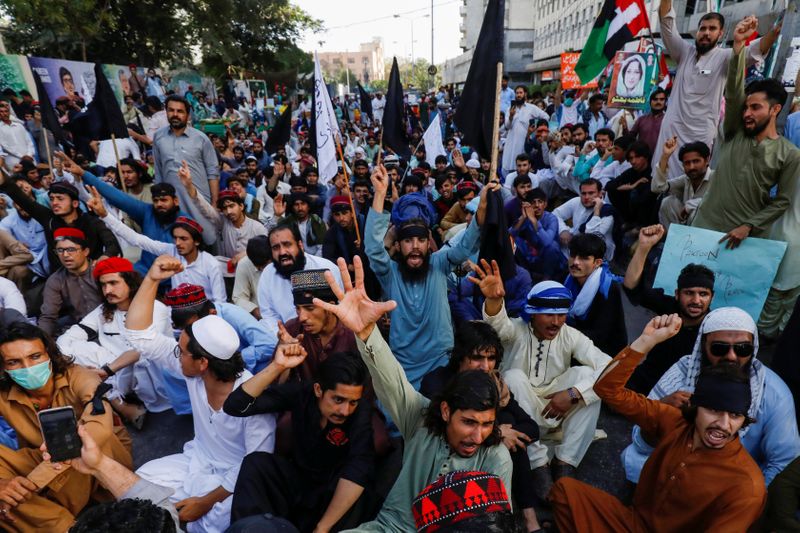By Jibran Ahmad and Saud Mehsud
PESHAWAR/DERA ISMAIL KHAN, Pakistan (Reuters) - Thousands of protesters broke through a police blockade in northwestern Pakistan on Sunday as they tried to march on the city of Bannu and then on to Islamabad to demand a government probe into the deaths of four young men who they allege were tortured and killed by security forces.
Police fired tear gas in an attempt to keep them from entering the city of Bannu, which lies on the way to Islamabad, on Sunday evening.
The protesters were carrying the bodies of the four young men, aged between 15 and 20, found in a shallow grave on March 21 in the town of Jani Khel, outside Bannu.
"The government didn’t pay any attention to us and left us alone to mourn the slain boys," Haji Mohammad Wali, one of the protesters, told Reuters by phone.
Relatives of the dead, alleging they died during interrogation by security forces, held a sit-in in Jani Khel for nearly a week, refusing to bury the bodies until an investigation was opened against an army officer they said was responsible.
A Pakistani military spokesman declined to comment about the incident on Sunday, and the military has not commented publicly on the case.
The central government has not commented on the case.
Officials of the Khyber-Pakhtunkhwa provincial government, including Chief Minister Mahmood Khan, travelled to Bannu on Sunday to meet with protesters.
"This incident is a challenge for my government and law enforcement agencies," Khan said in a statement, adding those responsible for the deaths will be held accountable.
The protesters said that after their demands for an inquiry went unheard they decided to march to Islamabad - 300 km (190 miles) away - and local police tried to stop them by placing barricades in Bannu.
The four dead boys had been missing for several weeks, according to their relatives. Relatives said their bodies bore signs of torture when they were found.
Protests were also held in the port city of Karachi on Sunday.
The town of Jani Khel is part of the former semi-autonomous tribal areas, a region along the Afghanistan border that served as a base for the Taliban, al Qaeda, and other jihadist groups until a series of Pakistani military offensives drove them out.

Rights groups have accused the military of carrying out extrajudicial detentions and other abuses in the area - a charge the military has consistently denied.